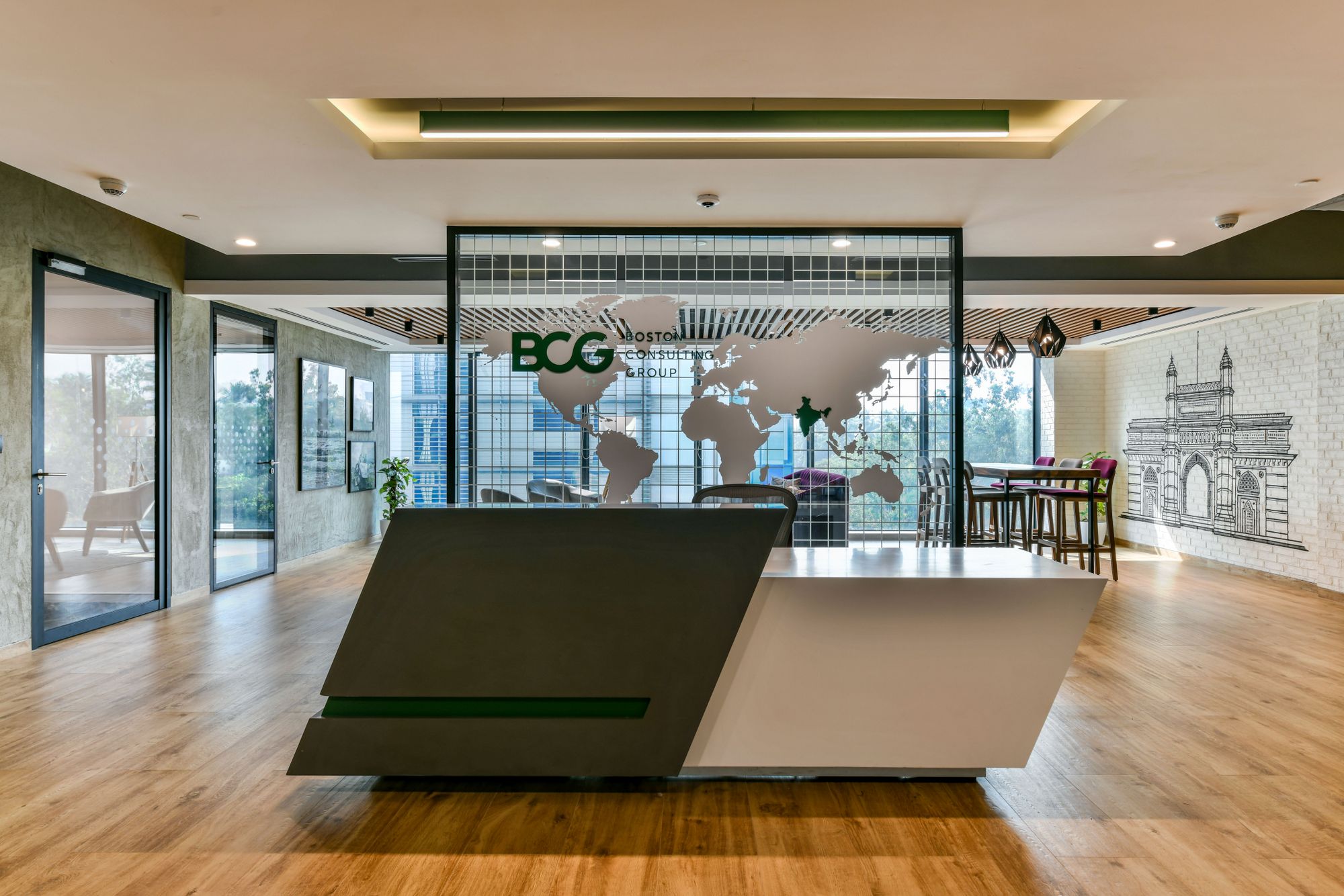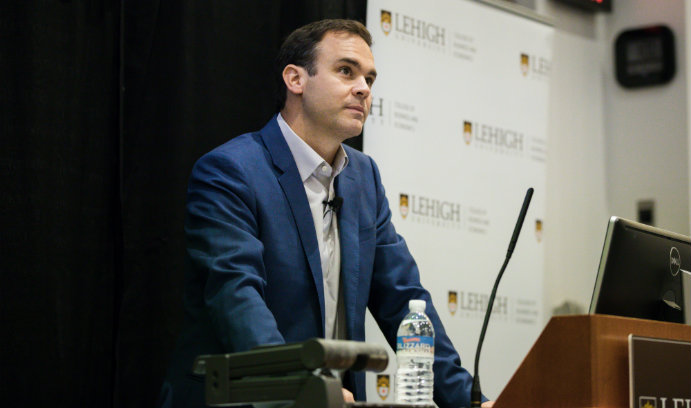Search results for :
Where Should I Work? Boston Consulting Group vs. McKinsey
Whether you’re still in school or you’ve already earned your MBA, it can be a tall order to shuffle through the sheer numbers of job options. Perhaps you’re even fortunate enough to have a number of offers that seem appealing but you’re wondering how to find the best fit.
If you’ve chosen to specialize in consulting, you’re well aware that you’ll be on a large playing field comprised of multiple heavy hitters. Here, we’ll compare two of the biggest draws—Boston Consulting Group (BCG) and McKinsey and Company—which may be helpful in honing in on your dream job.
Where Should I Work? BCG vs. McKinsey
BCG vs. McKinsey: The Interview Process
Regardless where you’ve applied, chances are you’ve readied yourself for an intense interview. No interview is without its stressors, but both McKinsey and BCG are known for a particularly rigorous interview processes. These companies engage potential employees in a two to three round process that includes both a fit and case portions (that is, are you a good match with the company, and can you solve real-world problems with which you’re presented). As discussed in this helpful guide on BCG interview prep, you’ll first be posed with case and fit questions, along with a test of your potential which often takes place in the first round. Candidates are then asked to complete written case examinations, in which they will review a number of documents and submit a response to the case in question.
Like BCG, McKinsey’s interview process can last two-to-three months. According to one source, one of the major differences between the two is that “McKinsey pressure tests to determine whether handling pressure is something you can do … [while BCG] pressure tests not to see if you know what you’re talking about, but rather to see if you really believe what you’re saying.”
McKinsey breaks down its process into three main sections: experience, a multiple choice problem solving test (PST), and case studies. According to one interviewee, “I interviewed with multiple people ranging from engagement managers to partners. No surprises on interview day as McKinsey spends a lot of time with applicants preparing for the case study.”
BCG vs. McKinsey: Compensation
Both companies offer a healthy starting salary with a base of at least $165,000. At McKinsey, recently hired MBAs can make above $200,000 in the initial year, with a $30,000 signing bonus and a performance bonus of $35,000. BCG boasts a performance bonus of up to $45,000, making it the more lucrative of the two for first year hires. Typically, McKinsey sets the standard for salary, and beats BCG to the punch in increasing salary rates.
| Company | Annual Salary | Bonus | Singing Bonus | Total Compensation |
|---|---|---|---|---|
| Boston Consulting Group (BCG) | $167,000 | $45,000 | $25,000 | $237,000 |
| McKinsey and Company | $165,000 | $35,000 | $30,000 | $230,000 |
While responsibilities at each firm are similar for a newly hired MBA, job title varies slightly. At McKinsey, the title is Associate, while at BCG it is Consultant. Finally, for further comparison, McKinsey and BCG and Bain (the other third of the Big Three) pay around 20 percent more than the “Big 4” accounting firms.
BCG vs. McKinsey: Culture
For many people, culture is the deciding factor when choosing between two potential companies. It can be one of the most important elements of a job, over and above the more tangible benefits. According to Management Consulted, at McKinsey, associates “are trained to attack a problem in a certain way – no matter which global office you’re in or at what level, you can count on the McKinsey Way.” According to many, McKinsey’s culture is considered formal and “buttoned up.”
As for BCG, one employee describes their experience as follows:
“Lovely people and flat leadership structure allows for a great culture that promotes camaraderie and encourages learning between peers and from people above you.“
Another employee sang the praises of its “fancy offices.” The company is known as a trendspotter, and has the reputation for a customized approach to getting and retaining clients. McKinsey is known for its lengthy client relationships and a focus on reporting.

Company retreats are the norm for McKinsey, with many of its global offices taking part in a strong, welcoming culture.
BCG vs. McKinsey: Geography
BCG and McKinsey’s home offices are both in the U.S. (Boston and New York, respectively) and both have global presence. McKinsey has the most offices worldwide at 65, and the largest number of consultants. BCG’s global reach covers 50 countries. New hires can expect to travel extensively at both companies, with the expectation being four days of travel to client sites and Fridays in the home office.
BCG vs. McKinsey: Career Development
Both firms adhere to the ‘up or out’ rule of promotions, that is, after two years one decides whether they will stay or depart. Upon remaining at BCG, employees find a large number of opportunities for professional growth. Top performers receive rewards such as a part in a strategic project along with their international counterparts.
According to their site, “Every new BCGer is hired with the belief that he or she will be a long-term employee, capable of substantial professional and personal growth within the firm. We recognize and value each individual’s desire for world-class opportunities.”

“Every new BCGer is hired with the belief that he or she will be a long-term employee, capable of substantial professional and personal growth within the firm. We recognize and value each individual’s desire for world-class opportunities,” the company says.
At McKinsey, associates are assigned early on to specific practice areas. With two tracks, a subject expert and a generalist tract, the company encourages employees to be flexible in acquiring new knowledge and skills that will help them to grow. Notably, McKinsey encourages applicants to join the company who may have gotten an MBA but who have a prior non-business degree. According to Management Consulted, “If your education and/or work experience is ‘outside the norm,’ McKinsey is more likely to consider you than BCG”.
Both McKinsey and BCG are ahead of the curve in assigning new hires to specialty areas, as many firms wait until hires advance to senior levels to assign their practice focus.
BCG vs. McKinsey: Recruiting
McKinsey, as mentioned above, was one of the first management consultants to hire recent graduates of MBA programs as opposed to seasoned managers. They continue to engage in this hiring practice, as does BCG but to a lesser degree. Both firms hire on a locked-in schedule, with recruiting cycles beginning in the fall. It’s important to note that existing consultants have a greater influence upon hiring decisions than recruiters.
BCG notes that “Our case teams share many similarities with MBA study groups, brainstorming together to create maximum value.” Though their hiring process is rigorous, once they do hire, the possibilities are numerous for growth potential at both firms.
While it may seem obvious, it’s important to point out also that alumni from either company have a great chance of future growth at other firms.
Can IKEA and Instant Pot Teach Us About Competition? MIT Sloan Thinks So
People purchase IKEA furniture because it’s easy to put together. They don’t want to have to buy a drill; they want holes and pieces that easily fit together like Legos. In fact, according to Harvard professor Theodore Levitt, when someone buys a drill, what they want is what the drill can do.
That’s just one reason why MIT Sloan professor Sanjay Sarma believes that IKEA is on the cutting edge of business. While other companies are trying to sell solutions to outdated problems, IKEA has figured out how to solve a core problem.
“That’s what I call inversion,” Sarma says. “You’ve got to wrap yourself around the need and think outwards, rather than limit yourself to your product.”
So, what can IKEA and other companies teach about competition? Sarma provides insight from three recognizable brands who are mastering the art of inversion, and one that failed.
Amazon
When Amazon first got its start, they only sold books. Then, in 2007 when they came out with the Kindle e-reader, they had to compete with both Apple and Google rolling out similar products. But Amazon stayed ahead of the competition by creating a Kindle reading app that could be used on any device. They also unveiled products such as Audible (for audiobooks and podcasts) and the Amazon Echo smart speaker.
They identified the need bigger than books—reading—and fulfilled it.
Instant Pot
In 2009, Robert Wang created the Instant Pot, a do-everything cooking appliance that connected to Bluetooth. It changed the cooking experience, allowing users to remotely monitor their cooking and do everything from slow cook to pressure cook to steam and bake. “It’s stunning,” Sarma says.

The increasingly popular Instant Pot is a relatively new product, created in 2009 by Robert Wang.
Nestlé
Unfortunately for Nestlé, they missed the mark with their smartphone-connected espresso machine. They had an idea that people were in the business of coffee, but instead, it’s actually about the morning experience and taking a few minutes to prepare for the day. They missed the point because they missed what people were after.
Ford Motor Company
Ford tried the inverted approach in 2016 with the purchase of Chariot, a van shuttle service. The idea was to compete with rideshare companies. And while it didn’t work out, it still was a smart move because it indicated that Ford recognized that a need for transportation outweighed the need for a car. Now, Ford has announced the purchase of Spin, a scooter company that uses cell phones to locate available rides—and it shows that they are learning.
You can read the full MIT Sloan story here.
This article has been edited and republished with permissions from its original source, Clear Admit.
5 Questions with the Director of Admissions at Illinois Gies College of Business
In our latest installment of the MetroMBA “5 Questions” series, we speak with Jennifer Larson, the University of Illinois Director of Recruiting and Admissions of Graduate Programs at the Gies College of Business. Larson talks about the future career of a Gies MBA grad, the hands-on nature of the MBA program, and the many financial aid opportunities for students.
1. What are Gies’ strongest industries and how does the school support students in those industries?
“Our recent graduates have worked for major corporations like Amazon, AT&T, Google, and Bank of America in a number of functional areas, including Consulting, Finance/Accounting, General Management, Information Technology, and Marketing.
Gies Business Career Services boasts a diverse employer base of Fortune 500 companies and other regional organizations across multiple industry sectors including, but not limited to, manufacturing, financial services, consumer products, and consulting. Almost 25 percent of the F500 and more than 40 percent of the F100 recruit from Gies College of Business.
Our students actively engage with global, national and regional employers on-campus and at major MBA consortium events. Illinois founded and participates with nine other Top 50 MBA programs in the Midwest MBA Career Fair, one of the largest regional MBA career fairs.
We offer alumni connections built through the Illinois Business Mentor Program and the Illinois MBA Alumni Association, bringing students and alumni together for an exchange of information on education, professionalism, aspirations, and ideas.
Our MBA students network and engage with alumni and employers for information sessions, workshops, networking events, career connections, and interview preparation. Illinois MBA alumni are counted among those who hold C-suite roles in manufacturing, consulting, financial services, and healthcare in both the public and private sectors.
We hear four predominant reasons why students pursue an MBA:
- to build and expand their professional network,
- to increase salary/earnings potential,
- to create greater future job optionality,
- to accelerate or change career paths.
Whatever the reason, Gies Business Career Services is an invaluable resource for our students from day one.
Career Services provides an integrated suite of career development, coaching, and alumni and employer resources that enable us to assist MBA students in achieving career success. This starts with pre-program groundwork.
Career Management Foundations is the eLearning portal to MBA Career Management in Gies College of Business. This launches your job search the summer before the MBA program commences. You will have the chance to engage in five distinctive career modules that expose you to career planning and active career management processes. These help our students define their goals and develop tools that will enable their professional advancement. Each module contains topic related information, videos, articles, assessments, and key deliverables.
We also provide customized career coaching and consultation for MBA students so they are fully prepared for the job search with a focus on building life-long job seeking skills that will help the student through each career transition. Combine that with being ranked #3 in ROI (BusinessWeek) and being a Top 25 U.S. Business School (Financial Times), there is no question that an MBA from Gies College of Business at Illinois delivers max value during and after your time in the MBA program.”
2. Can you identify the ideal Gies candidate? Characteristics you look for?
“At Illinois, we don’t look for students who want to sit in a classroom for two years. We admit students who are passionate about applying the concepts learned in the classroom, actively participate in and outside of the classroom, and are team oriented. We look beyond test scores. We value candidates who bring a strong sense of community, possess a good understanding of the importance of career outcomes, and can demonstrate excellent interpersonal and communication skills. We appreciate and welcome diverse personal and professional backgrounds beyond business.”

“, “At Illinois, we don’t look for students who want to sit in a classroom for two years. We admit students who are passionate about applying the concepts learned in the classroom, actively participate in and outside of the classroom, and are team oriented,” Larson says.
3. If there was one feature of the MBA program you could highlight, what would it be?
“The MBA program at Gies College of Business is one of the most hands-on MBA programs in the country.
Action Learning at Gies is more than a course or a program; it’s ingrained in our culture. Action Learning is integrated throughout our undergraduate and graduate programs. Because our students get hands-on experience during school, they graduate more prepared for the real-world, to add value from day one, and to succeed in their careers.
Action Learning projects are a critical part of the students’ education. We work with clients who invest in developing our students. When a client is engaged and committed, students reciprocate with enthusiasm and dedication to the project. Through our Action Learning programs, students have a better story to tell recruiters, improve their ability to work as a team, and enhance their ability to solve complex problems.”
4. What kinds of financial aid are available to MBA students?
“All candidates admitted to the MBA program in Gies College of Business at Illinois are automatically considered for our merit-based Dean’s Scholarships with no separate scholarship application necessary. 85 percent of students admitted to the MBA program receive a scholarship offer from our diverse portfolio of awards. We also want our students back! The Illinois x 2 Scholarship offers a 50 percent tuition reduction for full-time MBA students who are University of Illinois alumni and meet the eligibility requirements. Find all the scholarships here.
The MBA program at Gies is dedicated to training an inclusive cohort of future leaders in a diverse, global setting. In addition to our traditional merit-based scholarships, we allocate eight full-tuition scholarships annually, for graduates of historically black colleges and universities. Along with submitting a standard MBA application, applicants for these eight scholarships must have a competitive GMAT score (or equivalent GRE), at least two years of work experience, and a minimum GPA of 3.5.
Gies College of Business is committed to educating and directing talented women toward leadership roles in business. Gies College of Business is a Forté sponsor school dedicated to having a diverse group of Forté MBA Fellows, which is an honor given to select female MBA students at participating business schools. Both domestic and international women may be nominated as Fellows; each receives a generous scholarship from the MBA program at Gies College of Business.”
5. What underrated area/activity in Champaign – Urbana should every student do?
“Champaign-Urbana has a robust arts, culture, and music scene. Here, urban engages rural for an unparalleled ‘college-town’ experience that offers access to several renowned museums, and a thriving arts and culture community. In large part because of the University of Illinois’ diverse population, C-U has a strong foodie scene with a wide variety of restaurants and cuisines from all over the world. According to readers of Midwest Living magazine, the metro area of Champaign-Urbana is the best midwest food town.
For those interested in learning more about the full-time MBA program at Illinois Gies College of Business, head over to the school’s official website.
Columbia Business School Talks Taxing Multinational Corporations
The first step toward social responsibility is, arguably, fair taxation. There’s just one problem—for years, multinational corporations have raced to pay the fewest taxes or avoid paying it altogether. For example, Apple employs a few hundred people in Ireland, so it falls under the .005 percent tax bracket. And Apple isn’t the only multinational company to do so.
Beyond the ‘Big Four’: What are the Other Major Consulting Firms You Should Know?
Deloitte, PwC, KPMG, and E&Y: Together these firms make up the “Big Four”—the four biggest professional services firms in the world. The companies offer auditing, assurance services, management consulting, corporate finance, legal services and more. It’s no surprise, that many of these companies are also ideal destinations for many MBAs. Continue reading…
MS in Finance
University of Rochester Simon Business School MS in Finance
• Simon’s MS in Finance program is ranked No. 5 in the U.S. by the Financial Times (2018).
• Three preeminent journals—the Journal of Financial Economics, the Journal of Accounting and Economics, and the Journal of Monetary Economics—were founded or are edited at Simon.
• This program offers the option to pursue an internship track, which will help you strengthen your résumé and gain professional experience before heading into your full-time role.
• The program is STEM-designated, which shows recruiters that you’ll arrive on the job with analytic tools and leadership skills that positively impact a company’s bottom line. In addition, the designation allows international students to work in the U.S. for up to 36 months on a student visa, if hired in a STEM-eligible role.
• Get hands-on learning experience by participating in the Meliora Fund, which is managed by a team of Simon MBA and MS students and members of the Simon Finance and Investment Club. The fund is invested in various sectors, including health care, financial, industrial, energy, consumer, and technology, media, and telecom (TMT).
Learn more about our MS in Finance program details.
Class Profile
There are currently 183 students in the MS in Finance program that are, on average, 22-years old. About 55 percent of the class is comprised of female students, with 45 percent male students. The GMAT range (80th percentile) is between 630–720, and the GPA range (80th percentile) is between 3.0–3.8. Students in the program have an average of six months of previous work experience.
Tuition, Scholarships, and Financial Aid
Tuition for the University of Rochester MS in Finance is currently $79,250. More than 50 percent of MS in Finance students receive scholarship support.
Admissions
Please include the following in order to apply:
• Online application
• Current résumé and work history
• One required essay (250-500 word limit)
• Applicant interesting fact (25 word limit)
• School-issued official transcripts, scanned and uploaded for each college attended
• Test-taker results for GMAT or GRE (including Analytical Writing Assessment), scanned and uploaded
• Contact information for two references who can provide a professional recommendation, if contacted
• $90 application fee
Simon Business School is honored to waive the application fee for active-duty military members and veterans and other eligible full-time MBA applicants.
International Applicants:
• Test-taker results for TOEFL or IELTS, scanned and uploaded (view school code here)
• Required of all international candidates except those who attended three or more consecutive years of post-secondary education taught solely in English and received a baccalaureate or master’s degree from a college or university where English was the language of instruction.
• Optional InitialView interview and writing sample – an excellent way to add dimension to your candidacy and demonstrate English proficiency.
Application deadlines are as follows:
October 15
January 5
February 15
March 31
May 1
MS in Marketing Analytics
University of Rochester Simon Business School MS in Marketing Analytics Overview
• Our expert faculty and rigorous curriculum will train you to understand, interpret, and communicate big data, so you’ll be prepared for a career in marketing, marketing research, pricing, business analytics and analysis, or sales management.
• This program offers the option to pursue an internship track, which will help you strengthen your résumé and gain professional experience before heading into your full-time role.
• The program is STEM-designated, which shows recruiters that you’ll arrive on the job with analytic tools and leadership skills that positively impact a company’s bottom line. In addition, the designation allows international students to work in the US for up to 36 months on a student visa, if hired in a STEM-eligible role.
• Get hands-on learning experience by joining Simon Marketing Association, which hosts an annual inter-school Simon Marketing Case Competition. Joining Simon Pricing Club is another great opportunity, which allows you to attend the Professional Pricing Society conference and inviting pricing industry leaders to campus.
Learn more about our MS in Marketing Analytics program details.
Class Profile
There are currently 75 students in the MS in Marketing Analytics program that are, on average, 22-years old. About 81 percent of the class is comprised of female students, with 19 percent male students. The GMAT range (80th percentile) is between 650–730, and the GPA range (80th percentile) is between 3.1–3.9. Students in the program have an average of six months of previous work experience.
Tuition, Scholarships, and Financial Aid
Tuition for the University of Rochester MS in Marketing Analytics is currently $67,250. More than 65 percent of MS in Marketing Analytics students receive scholarship support.
Admissions
Please include the following in order to apply:
• Online application
• Current résumé and work history
• One required essay (250-500 word limit)
• Applicant interesting fact (25 word limit)
• School-issued official transcripts, scanned and uploaded for each college attended
• Test-taker results for GMAT or GRE (including Analytical Writing Assessment), scanned and uploaded
• Contact information for two references who can provide a professional recommendation, if contacted
• $90 application fee
Simon Business School is honored to waive the application fee for active-duty military members and veterans and other eligible full-time MBA applicants.
International Applicants:
• Test-taker results for TOEFL or IELTS, scanned and uploaded (view school code here)
• Required of all international candidates except those who attended three or more consecutive years of post-secondary education taught solely in English and received a baccalaureate or master’s degree from a college or university where English was the language of instruction.
• Optional InitialView interview and writing sample—an excellent way to add dimension to your candidacy and demonstrate English proficiency.
Application deadlines are as follows:
October 15
January 5
February 15
March 31
May 1
MS in Business Analytics
University of Rochester Simon Business School MS in Business Analytics Overview
• Simon’s MS in Business Analytics program provides training in Python, R, and Tableau to help you leverage the big-data insights that companies need.
• This program offers the option to pursue an internship track, which will help you strengthen your résumé and gain professional experience before heading into your full-time role.
• Simon’s MSBA program is STEM-designated, which shows recruiters that you’ll arrive on the job with analytic tools and leadership skills that positively impact a company’s bottom line. In addition, the designation allows international students to stay in the US for up to 36 months on a student visa, if hired in a STEM-eligible role.
• Get hands-on learning experience by participating in the Simon Pricing Club and attending the Professional Pricing Society conference and inviting pricing industry leaders to campus.
Learn more about our MS in Business Analytics program details.
Class Profile
There are currently 127 students in the MS in Business Analytics program that are, on average, 23-years old. About 57 percent of the class is comprised of female students, with 43 percent male students. The GMAT range (80th percentile) is between 650–730, and the GPA range (80th percentile) is between 3.1–3.8. Students in the program have an average of nine months of previous work experience.
Tuition, Scholarships, and Financial Aid
Tuition for the University of Rochester MS in Business Analytics is currently $67,250. More than 60 percent of Business Analytics students receive scholarship support.
Admissions
Please include the following in order to apply:
• Online application
• Current résumé and work history
• One required essay (250-500 word limit)
• Applicant interesting fact (25 word limit)
• School-issued official transcripts, scanned and uploaded for each college attended
• Test-taker results for GMAT or GRE (including Analytical Writing Assessment), scanned and uploaded
• Contact information for two references who can provide a professional recommendation, if contacted
• $90 application fee
Simon Business School is honored to waive the application fee for active-duty military members and veterans and other eligible full-time MBA applicants.
International Applicants:
• Test-taker results for TOEFL or IELTS, scanned and uploaded (view school code here)
• Required of all international candidates except those who attended three or more consecutive years of post-secondary education taught solely in English and received a baccalaureate or master’s degree from a college or university where English was the language of instruction.
• Optional InitialView interview and writing sample – an excellent way to add dimension to your candidacy and demonstrate English proficiency.
Application deadlines are as follows:
October 15
January 5
February 15
March 31
May 1
MS in Accountancy
MS in Accountancy Overview
• Simon’s 150-credit-hour compliant Accountancy program educationally qualifies you to sit for the New York State CPA exam—but goes far beyond ordinary test preparation.
• This program offers the option to pursue an internship track, which will help you strengthen your résumé and gain professional experience before heading into your full-time role.
• Simon’s MSA program is STEM-designated, which shows recruiters that you’ll arrive on the job with analytic tools and leadership skills that positively impact a company’s bottom line. In addition, the designation allows international students to stay in the U.S. for up to 36 months on a student visa, if hired in a STEM-eligible role.
• Get hands-on experience by joining Simon Accounting Association, which provides networking initiatives for students pursuing long-term careers in accounting fields, and invites industry leaders to campus throughout the year.
Learn more about our MS in Accountancy program details.
Class Profile
There are currently 50 people in the MS in Accountancy program that are, on average, 22-years old. Female students make up about 80 percent of the MS in Accountancy class. The GMAT range (80th percentile) is between 620–710, and the GPA range (80th percentile) is between 3.1–3.7. Students in the program have an average of six months of previous work experience.
Tuition, Scholarships, and Financial Aid
Tuition for the program is currently $65,000. More than 70 percent of MS in Accountancy students receive scholarship support.
Admissions
Please include the following in order to apply:
• Online application
• Current résumé and work history
• One required essay (250-500 word limit)
• Applicant interesting fact (25 word limit)
• School-issued official transcripts, scanned and uploaded for each college attended
• Test-taker results for GMAT or GRE (including Analytical Writing Assessment), scanned and uploaded
• Contact information for two references who can provide a professional recommendation, if contacted
• $90 application fee
Simon Business School is honored to waive the application fee for active-duty military members and veterans and other eligible full-time MBA applicants.
International Applicants:
• Test-taker results for TOEFL or IELTS, scanned and uploaded (view school code here)
• Required of all international candidates except those who attended three or more consecutive years of post-secondary education taught solely in English and received a baccalaureate or master’s degree from a college or university where English was the language of instruction.
• Optional InitialView interview and writing sample—an excellent way to add dimension to your candidacy and demonstrate English proficiency.
Application deadlines are as follows:
October 15
January 5
February 15
March 31
May 1
New Consulting Job Openings Are Flourishing at These Firms
Top MBA talent has made its way into prestigious consulting firms for decades, creating what we’ve previously called “a virtuous circle,” where the demand for this talent grows. With high starting salaries and the opportunity to work with a range of clients across many industries, new MBA jobs at consulting firms are always highly sought after. Here’s a look at some of the best new MBA jobs out there in the consulting world this week:
Stanford GSB Tops Remodeled Bloomberg Businessweek Ranking
The Stanford Graduate School of Business is no stranger to a top spot, but this is their first time claiming top honors on the Bloomberg Businessweek Best B-School list for U.S. programs.
Cornell Introduces Grade Non-Disclosure – New York News
Let’s explore some of the most interesting stories that have emerged from New York business schools this week.
Johnson Students Vote to Enact Grade Non-Disclosure – Johnson Business Feed
After a year-long study initiated by Johnson’s Student Council to “evaluate the alignment of academics and recruiting,” Cornell Johnson students have “voted to enact a policy of grade non-disclosure” in which Two-Year, One-Year, and Johnson Cornell Tech MBA students need not “disclose their grades to recruiters until after a full-time, post-graduation job offer has been extended.”
Associate Dean for MBA Programs Vishal Gaur writes “We hope that grade non-disclosure will encourage students to take more academic risks and think holistically about their education, personal development, leadership, and the impact they want to have in the future.”
Victoria Wilmarth (MBA ’18), who is now Brigham and Women’s Hospital’s Deland Fellow in Hospital Administration believes “the vote will strengthen the school’s collaborative community.”
“This vote helps bring Johnson’s academic experiences into alignment with the school’s values. I think this will deepen students’ commitment to collaborative learning and support academic risk taking for professional and personal development.”
You can read the entire Johnson Business Feed article here.
Five New Faculty Bring Mix of Research Insight, Corporate Experience to Business School – Stevens Institute of Technology School of Business News
For the 2018-19 school year, the Stevens Institute of Technology School of Business welcomed five new professors, all of whom are well equipped to help students “think critically about technology’s role in solving business problems.”
- Assistant Professor Apostolos Filippas: “Research interests include business analytics, natural language processing, data science, online platforms and market design.”
- Assistant Professor Pranav Garg: “Studies human capital, organizational design and learning, and strategy.”
- Associate Professor Anand Goel: Formerly a Director with Navigant Consulting whose “corporate experience is enhanced by research work that has been featured in many top journals, including the Journal of Financial Economics, Review of Financial Studies, and Journal of Finance.”
- Assistant Professor Majeed Simaan: Research interests include “banking and risk management, financial networks and interconnectedness, and portfolio theory and asset allocation.”
- Assistant Professor Jordan Suchow: Formerly a “research scientist with the Berkeley Artificial Intelligence Research Lab at the University of California–Berkeley.”
You can find out more about the new hires here.
New York Times‘ David Gelles: ‘When CEOs Speak Out, the World Listens’ – Lehigh College of Business Blog
New York Times business reporter David Gelles used his keynote speech at the recent Lehigh University College of Business and Economics 2018 Impact Symposium to posit “companies can no longer afford to sit on the sidelines when it comes to the hot button issues of the day.”
“On topics ranging from climate change to health care, gun laws to birth control, the biggest brands in the country are being forced to take a stand. It’s hard to state what an abrupt change this is,” he explains.

Gelles at the recent Lehigh University College of Business and Economics 2018 Impact Symposium / Photo via Christa Neu
He adds, “Until recently, companies avoided controversy at all costs. But these days, they are confronting it head on, sometimes even embracing it when it arrives unexpectedly, and in rare instances, seeking it out.”
Gelles points to Salesforce founder and CEO Marc Benioff’s threat to relocate its Indiana office in response to a 2015 law that would have “made it easier for religious conservatives to refuse service to gay people.”
Gelles explains, “Being a chief executive no longer means just running a profit and loss statement. It means being prepared to articulate your values—and your company’s values—when you least expect it. When CEOs speak out, the world listens. Sometimes, policies even change.”
You can read more about Gelles’ speech at Lehigh here.
New Dean Will Lead Cornell SC Johnson College of Business
Economist and labor market scholar Kevin F. Hallock has been appointed dean of the Cornell SC Johnson College of Business beginning December 15, Provost Michael Kotlikoff announced yesterday afternoon. The Cornell College of Business, formed in early 2016, integrates the Samuel Curtis Johnson Graduate School of Management, the School of Hotel Administration, and the Charles H. Dyson School of Applied Economics and Management.
An experienced administrator, Hallock has served as dean and professor in the School of Industrial and Labor Relations (ILR) since 2015. His new term as dean of the College of Business was approved by the Cornell Board of Trustees executive committee and will run through June 30, 2024. Kotlikoff said in a statement that a search for a permanent ILR School dean to replace Hallock will begin immediately and an interim dean will be named next week.
“As an accomplished economist, scholar, and administrator, Kevin provides the Cornell SC Johnson College of Business with the leadership to maximize its enormous potential,” Kotlikoff said in a statement. “His thorough familiarity with Cornell’s administrative workings is a significant asset, and the college will be well served by his deep understanding of business administration theory and practice.”
Overseeing the combined schools of the Johnson College of Business is a big job. The decision to unify the three schools under a single umbrella was reached because it promised to make a wider range of opportunities available to students while also increasing Cornell’s ability to draw top recruiters and faculty. But Founding Dean Soumitra Dutta stepped down unexpectedly in February, and L. Joseph Thomas has been serving as interim dean since he left.
Hallock Brings Record of Strong Leadership
As ILR dean, Hallock’s accomplishments were many, including guiding the school through a strategic planning process, investing in student experience and well-being, and introducing a school-wide initiative to unite students, staff, and faculty around a common theme, such as “Technology and the Evolution of Work,” which has been this year’s theme. He also brings fundraising prowess, having raised resources for new investments in IRL faculty and research, expanded human resources, and a transition of ILR’s New York City office to a new home at 570 Lexington Ave, slated to open in January 2019.

Kevin Hallock, the next dean of the Cornell SC Johnson College of Business. Photo credit: Jesse Winter Photography
“Grateful and Excited to Start This New Chapter at Cornell”
Hallock said he is “grateful and excited to start this new chapter at Cornell” but realizes he has his work cut out for him.
“The Cornell SC Johnson College of Business, in its infancy, faces challenges, like many new organizations, and those challenges are part of what attracted me to this role,” he said in a statement. “But there is also enormous opportunity, outstanding strength, and unique advantages in the college and its three schools. I am excited to work with its talented staff, students, faculty, and alumni, and I am exceptionally optimistic about the future of the college.”
The College of Business notes that it has already celebrated several milestones in its first couple of years. Applications for open faculty positions in 2017-18 increased five-fold over prior years in some areas, the school reports. Not only that, more faculty who have been offered positions have accepted them than ever before, resulting in the successful hires of 20 new faculty. Undergraduate application volume at both the Charles H. Dyson School of Applied Economics and Management and the School of Hotel Administration grew by 80 percent between 2016 and 2018. Application volume at the Johnson Graduate School of Management is down just slightly year over year, less than one percentage point. This puts Johnson ahead of many of its U.S. peer business schools, which experienced even greater declines.
An expert on executive compensation, compensation design, and labor markets, Hallock’s research has focused on the complexity of executive compensation contracts and corporate performance and been featured in academic journals including The American Economic Review, the Journal of Corporate Finance and the Journal of Financial and Quantitative Analysis. The Sloan Foundation and the U.S. Departments of Labor and Education are among many organizations that have helped to fund his research.
Long History of Involvement at Cornell
A longstanding member of the larger Cornell family, Hallock joined the faculty of ILR in 2005 and became its dean in 2015. During his tenure, he also has played an active role on several university committees, including Cornell’s Financial Policy Committee, the Provost’s Budget Model Task Force, and the Cornell Student Experience Initiative’s steering committee. In 2009, he was the founding director of Cornell’s Institute for Compensation Studies.
Outside of Cornell, he has also been active as a research associate at the National Bureau of Economic Research since 2003. And in 2013, he was elected a fellow of the National Academy of Human Resources. He has consulted and served as an expert witness on issues of compensation, executive compensation, stock price reactions to labor market events, and antitrust in labor markets.
Hallock holds a bachelor’s degree in economics summa cum laude from the University of Massachusetts, Amherst, and master’s and doctoral degrees in economics from Princeton University.
Learn more about the newly appointed dean of the Cornell SC Johnson College of Business.
This article has been edited and republished with permissions from Clear Admit.
Penn State Supply Chain Program Earns Top Ranking
For the fifth time since 2008, Gartner, Inc. has ranked the Penn State Smeal College of Business as the best supply chain graduate program in the United States. The Penn State Supply Chain program earned top scores in three categories for this year’s ranking: “program scope, industry value, and program size.”
On news of the ranking, Nicholas C. Petruzzi, Chair of the Department of Supply Chain and Information Systems, says, “Retaining the No. 1 ranking for graduate supply chain education provides great affirmation for the rigor, relevance, and impact of our professional supply chain programs.”
“We take pride in this news, and being recognized as a leader in supply chain education is a testament to the dedicated and tireless efforts of our faculty and staff, students, alumni, and recruiters.”
The news of the placement came only a few weeks after Gartner, Inc. announced its undergraduate ranking, which was also awarded to Penn State University.

Smeal earned top honors for its supply chain program for the fifth time since 2008 on the Gartner, Inc. rankings.
The full, official supply chain ranking from Gartner, Inc. will be released in the near future. Head over to the official Penn State Supply Chain website for more information on the program.
London Business School Announces New Masters in Analytics and Management
Earlier this week, the London Business School officially announced the new LBS Masters in Analytics and Management program, which is slated to begin August 2019.
The 12-month LBS Masters in Analytics and Management, according to the business school, “is designed for top graduates with a quantitative degree or work experience, who want to combine a detailed knowledge of data analytics, with the ability to translate big data into bold visions and profit-maximising business strategy.”
The LBS Masters in Analytics and Management (MAM) will be the fifth official specialized master’s program provided by the business school, alongside the Masters in Management and Global Masters in Management (MiM), the Masters in Finance (MiF), and Masters in Financial Analysis (MFA). In a recent press release announcing the newest program addition, LBS’ Associate Professor of Management Science and Operations Tolga Tezcan, who will teach in the program, says:
“There is huge demand from the top recruiters for managers who are not only data literate, but who also have the vision to see how big data can be used to create real competitive edge, product or service transformation. That’s why we’re combining subjects like machine learning and data visualisation with organisational behaviour.”
In the release, Gareth Howells, LBS Executive Director, MAM, Degree Education & Career Centre, also adds, “Jumping into the vibrant London business environment, our students will experience data in action. Using real data to solve real problems on a live analytics project, they will learn how to translate the results of data analysis into insightful, high-impact business solutions.”

The new Masters in Analytics and Management will begin August 2019, costing £33,500.
What Is The LBS Masters in Analytics and Management?
The program, according to the business school, is centered around a core of: “Data Analytics, Applied Statistics, Data Visualisation and Storytelling, Data Management, Digital Marketing, Data Science for Business, Machine Learning for Big Data, and Decision Technology.”
The school assures that hopeful entrants in the program must have “a strong degree in a quantitative subject such as Engineering, Maths and Sciences, Computing, Economics, Accounting, Finance or Business, and Management.”
About 95 percent of entrants in the program come from the international community, representing 50 countries worldwide. The school adds that about 96 percent of its graduates from the aforementioned Masters in Management program earned employment within three months of graduation, and that “we expect our new MAM graduates to hit the ground running, entering sought-after sectors like technology and consulting with similar levels of success.”
In addition, students in the program will have the option to undertake a fourth term, which will only be available for students on specific career treks. In the fourth term, which will cost additional fees not yet revealed by LBS, students can “pursue the option to take three additional elective courses or go on an international exchange with a top business school.”
Head over to the official London Business School Masters in Analytics and Management page for more details.
Columbia Research Identifies Customers At Risk, and More – New York City News
Let’s explore some of the most interesting stories that have emerged from New York business schools this week.
Online Companies Beware: New Columbia Business School Research Reveals That Customers With High Activity May Be At Risk Of Leaving the Company – Columbia Business School Blog
Columbia Business School professors Eva Ascarza and Oded Netzer recently published new research that explores how “customers end their relationships with companies in new and unpredictable ways.”
Professor Ascarza writes, “Companies need to understand the ramifications of this paper, because in the digital age, the landscape on customer retention has changed. Unlike the past when a consumer might have had to physically call to end a relationship with a company, today some customers are leaving without saying goodbye.”
Professor Netzer adds, “When it comes to customer retention levels, the most important thing is acknowledging that, in this new hybrid setting, there are indeed two unique types of customers who are at risk of ending their relationship with a company.”
“If businesses want to continue amassing and retaining loyal customers, they need to identify which customers belong in which bucket and then study their individual behavioral patterns so that they can take the appropriate measures to stop them before they walk out that virtual door.”
You can check out the article and the full study here.
Analytics Career Fair Draws Dozens of Recruiters to Meet Business Students – Stevens Institute of Technology School of Business Blog
The Stevens Institute of Technology School of Business Intelligence & Analytics program recently hosted a networking event in which Bed Bath & Beyond VP of Consumer Analytics Melanie Murphy spoke “with dozens of master’s students about how their analytical insights create value in business.”
Of Stevens’ Biz Intelligence & Analytics program, Murphy writes, “The program is so well balanced, from data, to different types of analytics, to the business intelligence perspective—and the students are incredibly smart.”
She adds, “You can tell, in talking with these students, that they’ve had that experience of getting in front of people and sharing ideas.”

Bed Bath & Beyond VP Melanie Murphy (right), talks with Stevens Business Intelligence & Analytics students / Photo via stevens.edu
According to the article, recruiters from Robert Half, L’Oreal, Jefferies, and UBS, among companies, “attended the event to meet and ask questions of students about their research.”
L’Oreal Assistant VP of Human Resources Information Services Gary Winant “brought in a Stevens team to examine turnover in a particular department, and use predictive tools to recommend solutions.”
He writes, “The students here come ready to work. I met with the students twice and was impressed by their commitment. We came back to them three months later with additional questions and even though the project was over, they took the time to respond in detail.”
You can read the full report from this year’s Business Intelligence & Analytics program here.
Graduate Students Provide a Helping Hand for New Business Owners – Gabelli Connect
Fordham’s recent Entrepreneurial Law Clinic was a joint effort between the Gabelli School of Business and Fordham Law, which “brought together students to work on behalf of … social ventures that seek to create positive change in society and companies founded by low-to-moderate income entrepreneurs who otherwise would be unable to afford an attorney.”
One business the Entrepreneurial Law Clinic supported was ConBody, “a boutique gym where New Yorkers learn a workout regime” its proprietor Coss Marte developed in prison. Marte, who received business training at “Defy Ventures, a non-profit that helps formerly incarcerated individuals start businesses,” got legal counseling from Fordham law students and fundraising advice from Gabelli students.
He writes, “They’re absolutely geniuses. They shot me questions that I never really thought about, and I was like, ‘Oh, I should do that.’ They were really on top of their stuff, and really hungry in helping me.”
You can check out the full piece here.
Paid Maternity Leave Increasing, and More – New York News
Pack up the pool gear and beach towels: let’s explore some of the most interesting stories that have emerged from New York business schools this week.
Father’s Day Data: Columbia Business School Research Demonstrates Popularity of Paid Paternity Leave – Columbia Business Blog
How has the culture of paid maternity leave been changing recently? New research from the Columbia Business School explores the topic, which has increased for 12 percent of private-sector workers in the U.S. There is still no current federal law requiring the implementation of paid maternity leave, leaving the U.S. with the precarious title as the only “industrialized” country in the world without a federally-mandated law. Individual states, however, can implement the policy, which has been increasing since the early 2000s.
Earlier this year, New York became the fourth state in the U.S. to create policy regarding paid maternity leave, alongside New Jersey, Rhode Island, and California, which implemented the law back in 2004. According to the article, “California’s paid family leave produced a 46-percent increase in fathers taking time off to bond with newborn and newly-adopted children.”
CBS professor Ann Bartel writes, “This study should help inform the conversation around paid leave, because research shows it is fundamentally a family issue – appealing to both mothers and fathers. At its core, paid family leave is a ‘dad’ issue as much as it is a ‘mom’ issue. As Father’s Day approaches, our research demonstrates that fathers will greatly utilize paid family leave if it is offered, and their employers are supportive of them taking that important time away from the job.”
You can read more about “Paid Family Leave, Fathers’ Leave‐Taking, and Leave‐Sharing in Dual‐Earner Households,” which was published in the Journal of Policy Analysis and Management, here.
How Social Media’s Powerful ‘Silent Majority’ Moves Bitcoin Prices – Stevens Institute of Technology Blog
Stevens Institute of Technology School of Business professor Feng Mai recently led an investigation to understand how social media public sentiment can significantly manipulate the value of bitcoin.
Professor Mai’s research, which was published in the Journal of Management Information Systems, encompassed scholars from Ivey, Dickinson, and the University of Cincinnati, all of whom “collected and analyzed two years’ worth of forum posts on the world’s most popular public bitcoin forum, Bitcointalk.”
The team found that “periods of increasingly positive social media commentary do in fact influence the rising price of Bitcoin significantly.” Mai writes, “We wanted to know who is affecting the price: a vocal minority, who may be biased, or the quieter majority, who do not seem to have a reason to be untruthful, or both.”
According to the article, “the “silent majority” — infrequent Twitter and Bitcointalk users who took the time to comment on the cryptocurrency’s prospects — moved prices more, as much as ten times more, when they posted positive comments.”
Mai writes, “This was a big finding, and it does seem to prove that people are trusting the silent majority much more, perhaps because they do not seem to have an agenda.”
Check out the full Stevens’ article here.
Johnson Women MBAs Boast Record-Breaking Attendance at Forté Conference – Johnson School of Management Business Feed
As we recently highlighted, Cornell’s S.C. Johnson School of Management reported that 49 Cornell students attended this year’s FortéMBA Women’s Leadership Conference in Atlanta, Georgia—29 from the two-year MBA program, seven from the one-year program, and 13 from the Johnson Cornell Tech MBA program.
The Forté Conference brings “together admitted, enrolling, and current women MBAs from Forté sponsor business schools to explore career paths, meet recruiters and mentors, and hear from today’s most influential businesswomen.”
This year’s conference featured keynote speaker Joanna Lipman, veteran journalist, chief content officer of Gannet, editor-in-chief of USA Today, and author of That’s What She Said, who spoke on “gender bias in the workplace and provided tips for how women can leverage their value.”
In addition to a Power Pitch session and a number of workshopsand panels on “on communications strategies, interviewing, design thinking, sustainable and socially responsible careers, LinkedIn, and the future of feminism, among others,” the conference also included talks from Accenture North American CEO Julie Sweet and State Street EVP and Deputy Global Chief Investment Officer Lori Heinel.
Anne Latham, Two-Year MBA ’20, writes of her experience:
“The Forte Leadership Conference was an incredible few days. I walked away feeling fortunate to have met so many of my incredible female classmates! The Dialogue with Leadership session, moderated by Dean Erika James, featuring Lori Heinel and Julie Sweet, was a particular favorite of mine, due to their incredibly engaging and thought provoking remarks. I hope we all continue to live by Julie’s advice: ‘If your dreams don’t scare you, they’re not big enough!’”
You can read the full article from Cornell here.
Cornell Johnson Women Turn Out in Droves at Forté Conference
Each year, the Forté Foundation hosts the two-day MBA Women’s Leadership Conference. This year’s event was held in Atlanta at Georgia Tech’s Scheller College of Business, and a record number of women MBA students from Cornell’s Johnson Graduate School of Business attended. Not only did Johnson have its most impressive conference showing to date, but it also had the second-highest number of representatives in attendance.

Forty-nine MBA students, representing a broad cross-section of Johnson’s three residential MBA programs, attended this year’s Forté conference:
- 29 from the two-year MBA program (Ithaca)
- 7 from the one-year MBA program (Ithaca)
- 13 from the Johnson Cornell Tech MBA program (NYC)
“I loved meeting Forté Fellows and conference attendees from other schools. It made the network seem smaller, less intimidating, and very empowering. Just imagine what we can all accomplish together,” said Cassiope Sydoriak (Two-Year MBA ’20).
Inside the Forté Conference
The annual Forté conference offers attendees an opportunity to explore career paths they may not have considered, hear from influential businesswomen, and meet recruiters and potential mentors.
This year’s highlights included an opening keynote from Joanna Lipman, the chief content officer at Gannet, editor-in-chief of USA Today, and author of That’s What She Said. Lipman offered actionable tips on how women can leverage their value and overcome obstacles related to the gender gap.
Other highlights from this year’s conference:
- Dialogue with Leadership: This dialogue included a panel discussion with Emory Goizueta Dean Erika James; Acceture CEO Julie Sweet; and State Street EVP and Deputy Global CIO Lori Heinel . Together, they used the panel as an opportunity to unpack their careers and offer leadership advice.
- Forté Power Pitch Competition: This capstone event allowed four newly-graduated MBA women to present their innovative business ideas to a distinguished panel of judges.
- Workshops and Panels: Multiple workshops and panels were held throughout the two-day event, which covered topics such as communications strategies, interviewing, design thinking, and the future of feminism.

To learn more about the Forté conference and get reflections from Cornell Johnson’s women MBA students, read the full article here.














